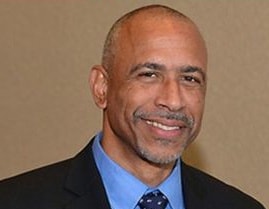Haiti’s humanitarian situation improving but challenges remain
WASHINTON – More and more survivors of Haiti’s earthquake are receiving vital assistance but it is clear that not everyone in need has yet been reached and much more remains to be done, particularly in terms of emergency shelter and sanitation, a top United Nations official said today.
“The humanitarian situation in Haiti is undoubtedly improving day by day. But we are under no illusion about the scale of the challenges still ahead for the next weeks and months,” Under-Secretary-General for Humanitarian Affairs John Holmes told the Security Council.
Around 3 million people – one in every three Haitians – were badly affected by the 12 January quake, the majority of them in the capital, Port-au-Prince, but also in other surrounding towns and cities.
Mr. Holmes, who visited Haiti and the Dominican Republic last week, reported that the worst of the medical emergency has passed; around 3 million people have received food rations; clean water is available for the vast majority of those in need; and every day more and more relief supplies are reaching the country and being distributed.
He added that the provision of shelter and sanitation is the top priority, with an estimated 1.2 million Haitians in need of emergency shelter support.
“There are no instant solutions. It will take time to cover all these needs, and care to maintain help to the most vulnerable without creating dangerous aid dependency,” stated Mr. Holmes, who is also UN Emergency Relief Coordinator.
“But we must not waver in helping several million people not only survive this catastrophe, but also rebuild their livelihoods and lives in a new and better way.”
Yesterday the UN and its aid partners announced they are seeking over $1.4 billion to assist Haiti, in the largest-ever humanitarian appeal launched in the wake of a natural disaster.
The revised appeal folds in the $577 million flash appeal issued just days after the earthquake, which was originally intended to cover a six-month period. It is being expanded to meet needs for one year as the hurricane and rainy seasons approach, and its size reflects the scale of the catastrophe and takes into consideration the need for stepped-up early recovery efforts.
In addition to the humanitarian tragedy, the earthquake has also created massive political challenges, Under-Secretary-General for Peacekeeping Operations Alain Le Roy told the Council.
Legislative elections planned for the end of March have now been postponed, and there are ongoing discussions among political parties on critical issues ranging from governance, elections, constitutional reform to decentralization.
“It is of utmost urgency that such discussions are now channelled into an executive-led dialogue on the political way forward,” said the UN peacekeeping chief. “Otherwise, spoilers might take advantage of the fluid and fragile political situation to spark instability.”
He cited the need for the international community and the UN to come together behind the Government and align their interventions and long-term plans with a national vision for reconstruction. “This will require a sustained level of support, both in terms of resources as well as technical assistance. In doing so, we need to empower the Government, not supplant it.”
Mr. Le Roy added that there is no doubt that the quake has fundamentally changed the context in which the UN mission in Haiti, known as MINUSTAH, is operating, and no doubt that this will have, and has already had, implications for the broader role of the mission and the UN in the country.
MINUSTAH’s Force Commander Major General Floriano Peixoto Vieira Neto told reporters yesterday that with its 8,500 troops from 18 countries, the mission’s military component is assisting with humanitarian aid while continuing to provide security across the small Caribbean nation.
It is also ensuring stability at 16 aid distribution points in Port-au-Prince, along with those in other places around the country, as well as providing security along the transport corridor from the Dominican Republic to Haiti.
UN agencies are continuing to bolster their aid efforts with the UN World Food Programme (WFP) announcing that it will begin providing cooked meals for school children in Port-au-Prince. It will start on 22 February with 19 schools and then scale up to reach some 50,000 children at 70 schools.
Meanwhile, the UN Food and Agriculture Organization (FAO) today warned of a possible food crisis in Haiti. Assessments carried out by the agency and its partners have shown that families hosting displaced people are spending their meagre savings to feed new arrivals and consuming food stocks. In many cases, these poor people are eating the seeds they have stored for the next planting season and eating or selling their livestock, particularly goats.
“We are seeing clear signs that people are already resorting to worrying and unsustainable coping strategies to try and help the estimated 500,000 people who migrated to rural areas and other smaller urban centres after the earthquake,” said Dick Trenchard, Assessments Coordinator for FAO in Haiti.


